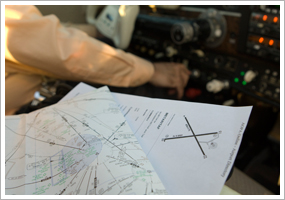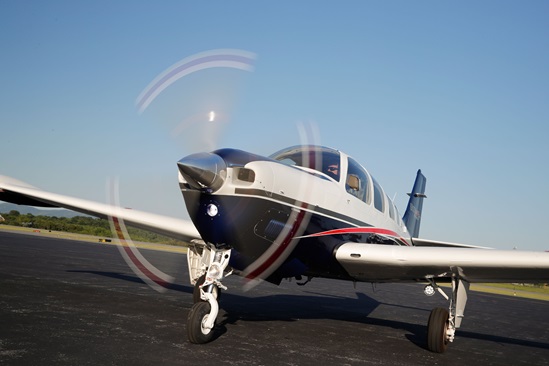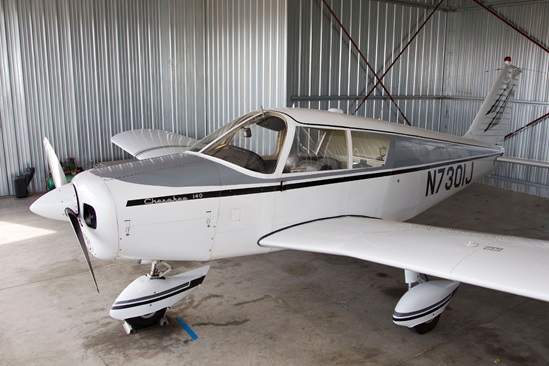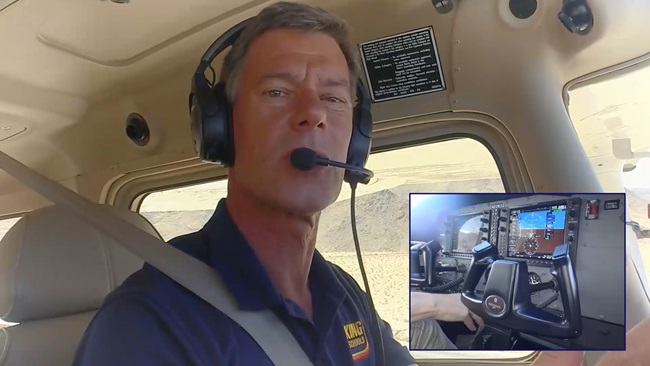| The following stories from the October 23, 2009, edition of AOPA ePilot were provided to AOPA members who expressed an interest in the particular subject areas. Any AOPA member can receive information tailored to their areas of interest by updating their preferences online. TRAINING TIPsDivision, not distraction
It takes self-discipline to stay properly focused when duties pile up. Lavishing too much attention in the wrong place could put you across the line from division of attention to distraction. For example, searching for opposing traffic reported nearby is always important, but don’t let your altitude or heading stray. Realizing that you have begun to drift upward from an assigned altitude, don’t let avoiding the deviation cause you to miss a call from ATC. Those are examples of fixation, the subject of the Nov. 19, 2004, “Training Tip.”
Something going wrong after takeoff is a common distracter, requiring keen focus. See how Thomas B. Haines made some rapid-fire decisions in his August 2006 AOPA Pilot “Waypoints” column. Even a seemingly routine operation like taxiing can be a distraction hotbed. Be forewarned by Dave Wilkerson’s discussion in “ Checkride: Getting around on the ground.”
You may know from the practical test standards that distractions are an important area for scrutiny, and your designated pilot examiner may create a “realistic distraction” during the checkride. It could be as simple as his opening a casual conversation while you are performing a delicate maneuver. “NASA's Aviation Safety Reporting System reports that cockpit conversation is far more distracting than the industry once believed. The more personal the conversation, the more distracting. Beware. The PTS directs examiners to provide realistic distraction during the flight. Many examiners launch an innocuous conversation during slow flight specifically to test your handling of distractions,” Wilkerson wrote in this article on AOPA Flight Training Online.
What to do? The examiner won’t mind if you politely defer chatting until a better time—preferably when you’re back on the ground after successfully completing the checkride. TRAINING PRODUCTSPink headsets from Powder Puff PilotPowder Puff Pilot, an online retailer of pilot products designed for women, has added pink aviation headsets to its selection. Company owner Sue Hughes, a CFI, says the headsets are part of a line of products designed to attract women to aviation by making them feel more comfortable in the cockpit. The headsets, which are bubble-gum pink and bear the company logo on the non-mic earcup, come in both active ($299) and passive ($179) noise reduction models. Order online.
Note: Products listed have not been evaluated by ePilot editors unless otherwise noted. AOPA assumes no responsibility for products or services listed or for claims or actions by manufacturers or vendors. FINAL EXAMQuestion: I have heard that the FAA is extending the duration of student pilot certificates to five years. Is this true?
Answer: That is partially correct. The FAA recently extended the duration of third class medical certificates to five years for those applicants who were under the age of 40 on the date of issue. This caused those pilots to have a valid medical certificate, but an expired student pilot certificate. In order to eliminate this issue, the FAA has extended the duration of student pilot certificates to match the duration of the third class medical certificate. If you were under 40 years of age on the date your medical certificate was issued, your student pilot certificate is valid for five years, just like your medical. If you were 40 or more years old on the date of your medical exam, your student pilot certificate is valid for two years, just like your medical.
Got a question for our technical services staff? E-mail [email protected] or call the Pilot Information Center, 800/872-2672. Don’t forget the online archive of "Final Exam" questions and answers, searchable by keyword or topic. |
 When a student pilot reaches the point of workload saturation during a flight lesson, among the lessons learned is one about “division of attention.” Dividing attention between competing demands gets easier with practice, and when you master workload-reducing methods such as
When a student pilot reaches the point of workload saturation during a flight lesson, among the lessons learned is one about “division of attention.” Dividing attention between competing demands gets easier with practice, and when you master workload-reducing methods such as 

